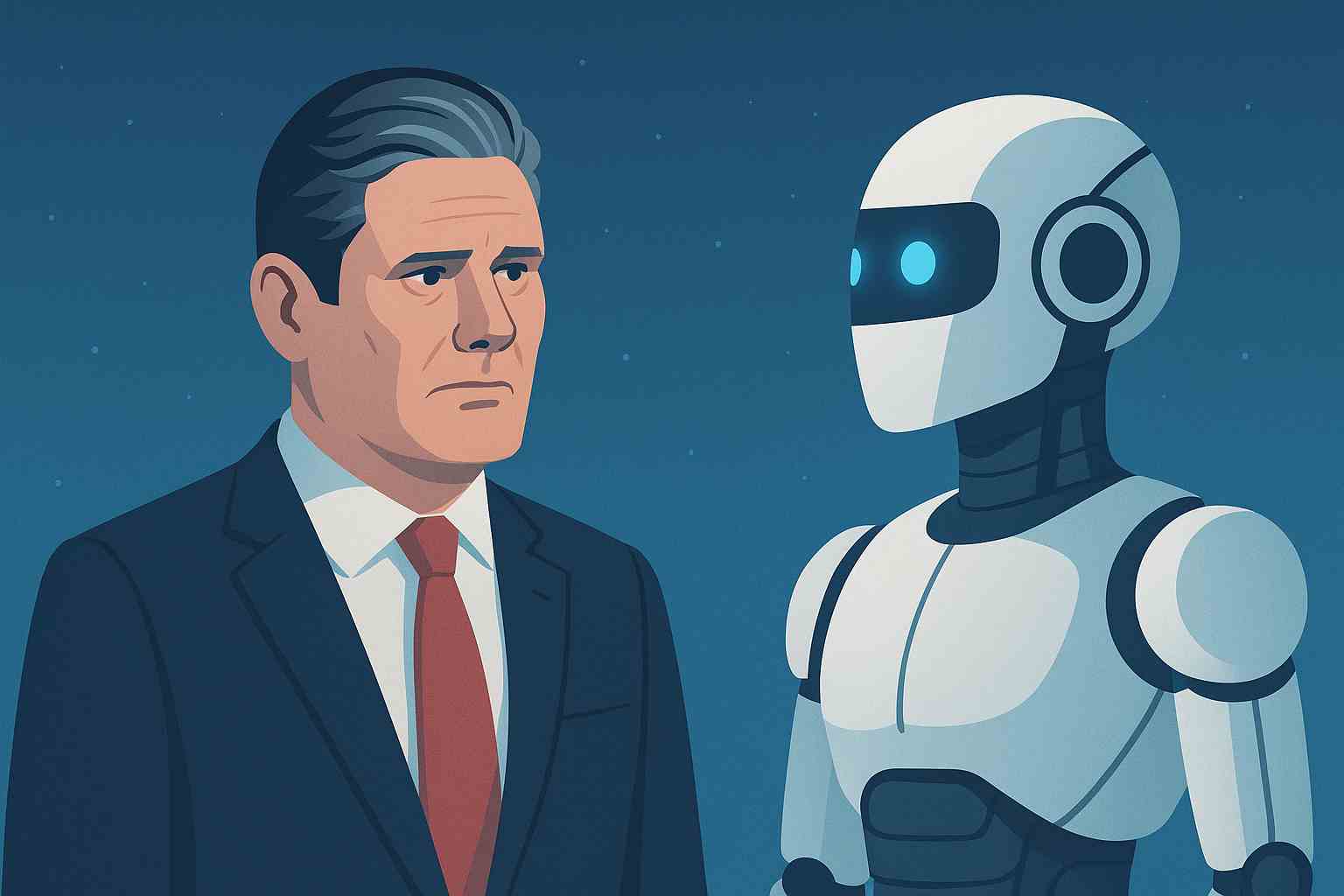Starmer Urges UK to Overcome AI Job Concerns Amid Tech Leaders’ Warnings
Artificial Intelligence (AI) is reshaping the global job market at an unprecedented pace. With both excitement and apprehension swirling around its rapid advancement, UK Labour leader Keir Starmer has stepped forward to calm fears and champion a proactive approach. As tech industry leaders continue to voice concerns about potential job disruptions, Starmer’s message is clear: the UK must push past AI job fears to seize innovation’s vast potential.
This nuanced debate couldn’t come at a more critical time. The nexus of AI’s promise and its potential risks is prompting governments, businesses, and workers alike to reconsider what the future of work looks like—and how to prepare for it.
Why Is There Growing Concern About AI and Jobs in the UK?
AI-driven automation and machine learning have accelerated job transformations across sectors, from manufacturing and retail to finance and services. Tech entrepreneurs and thought leaders have raised alarms that the UK’s workforce may face significant displacement if adaptation measures aren’t in place. These concerns include:
– Increased automation of routine and even complex tasks
– Unequal impact on lower-skilled and mid-skilled jobs
– Speed of AI adoption outpacing current retraining initiatives
Despite this, Starmer’s stance emphasizes resilience and adaptation rather than fear. He argues that focusing on anxiety alone could stifle innovation that might instead create new roles and industries.
How Can the UK Workforce ‘Push Past’ AI Job Fears?
Starmer advocates a multifaceted strategy to safeguard jobs while embracing AI innovation:
1. Investing in Lifelong Learning and Reskilling
Continuous upskilling programmes targeting AI literacy and complementary skills enable workers to transition into emerging roles. Public and private sectors must collaborate to fund and design agile education platforms that keep pace with technology.
2. Supporting AI-Driven Job Creation
Rather than seeing AI purely as a replacement, policies should promote sectors where AI amplifies human potential. This includes health tech, green energy, creative industries, and AI ethics consultancy.
3. Enhancing Worker Protections and Social Safety Nets
As job nature evolves, social frameworks like unemployment benefits, universal basic income trials, and flexible working arrangements become vital to cushion transitional impacts.
What Are Tech Leaders Saying About AI’s Impact on Employment?
During London Tech Week and similar forums, key figures from startups to established giants have expressed nuanced views. While lauding AI’s ability to optimize operations and drive new products, many warn of underestimated displacement risks and the need for clear regulation.
The Next Web report highlights this conversation where Starmer responded directly to tech sector apprehensions, acknowledging challenges but pushing for optimism and proactive policy. Source
How Is the UK Government Responding to AI Job Market Changes?
The UK government has launched various initiatives to align with AI’s evolving landscape:
– Funding AI R&D hubs focused on ethical and human-centered technologies
– Expanding apprenticeships tailored to digital transformation
– Promoting public-private partnerships to scale reskilling efforts
Though progress is underway, the pace of change demands ongoing assessment and community engagement to maintain workforce relevance and economic competitiveness.
See our recent guide on AI for insights on leveraging AI trends responsibly.
Summary: Navigating AI and Jobs Requires Balanced Leadership
Keir Starmer’s message captures an essential truth: AI is not a harbinger of doom but a challenge demanding foresight, education, and inclusivity. As tech leaders raise valid alarm bells, the path forward is not to resist AI but to shape its impact through smart policies and collaborative effort.
For workers and businesses alike, embracing change with preparedness is the key to thriving in a more automated world.
Ready to future-proof your career or business in the AI age? Stay informed, stay adaptable, and be part of the conversation.
—
FAQ
Q: What jobs are most at risk due to AI automation in the UK?
A: Roles involving repetitive, routine tasks such as data entry, basic administrative work, and some manufacturing jobs are most vulnerable. However, many jobs requiring creativity, emotional intelligence, and complex decision-making are less likely to be fully automated.
Q: How can UK workers effectively reskill to remain competitive in an AI-driven job market?
A: Workers should pursue continuous learning focusing on digital skills, AI literacy, data analysis, and soft skills like problem-solving and adaptability. Engaging with government-funded reskilling programs and online learning platforms can facilitate smooth career transitions.
Q: What policies is the UK government implementing to address AI’s impact on employment?
A: The government is investing in AI research, expanding apprenticeships, supporting lifelong learning, and promoting ethical AI use while strengthening worker protections and social safety nets.
—
Stay connected with us for the latest insights on AI, technology, and the future of work.
📢 Want more insights like this? Explore more trending topics.


